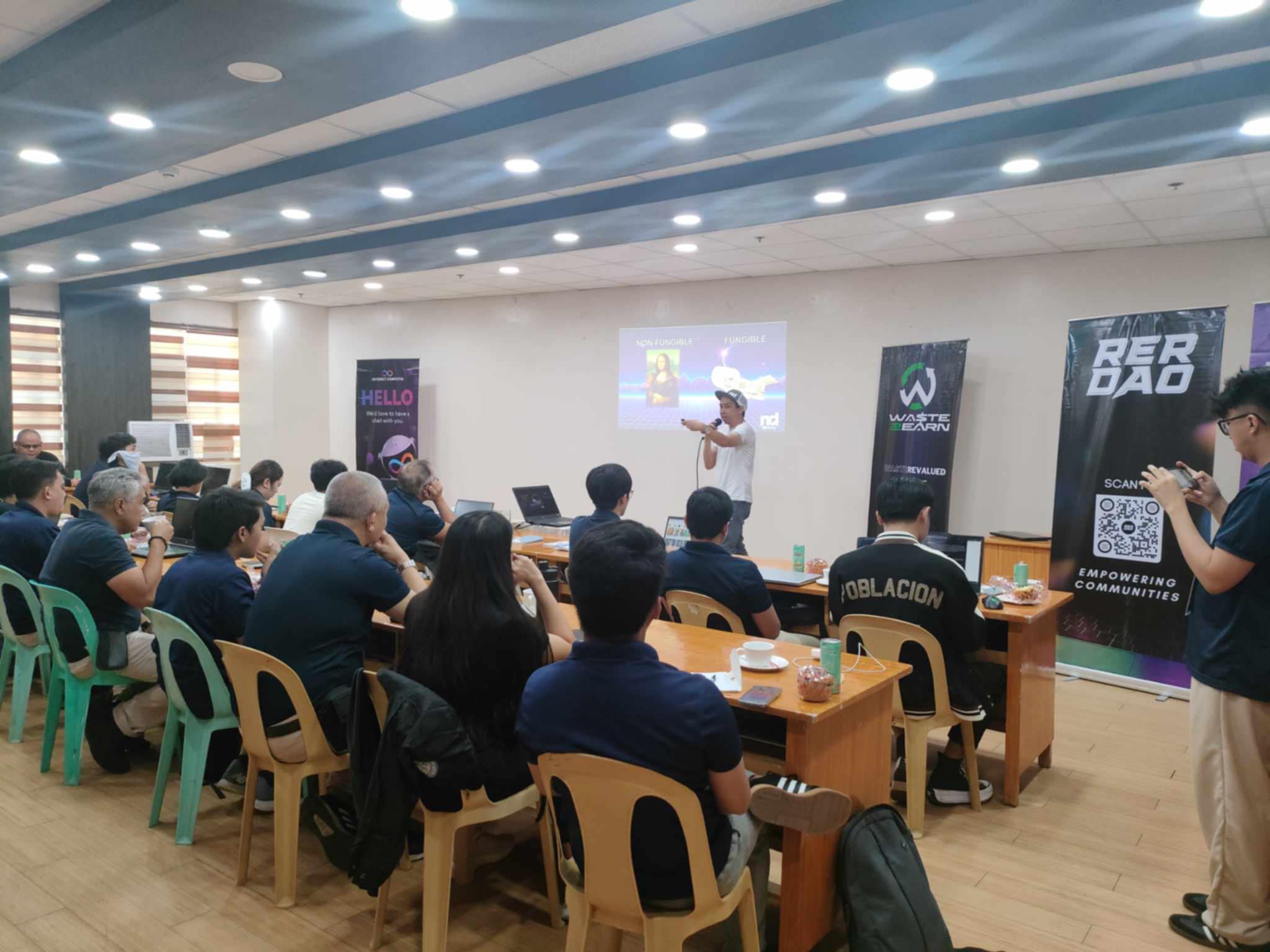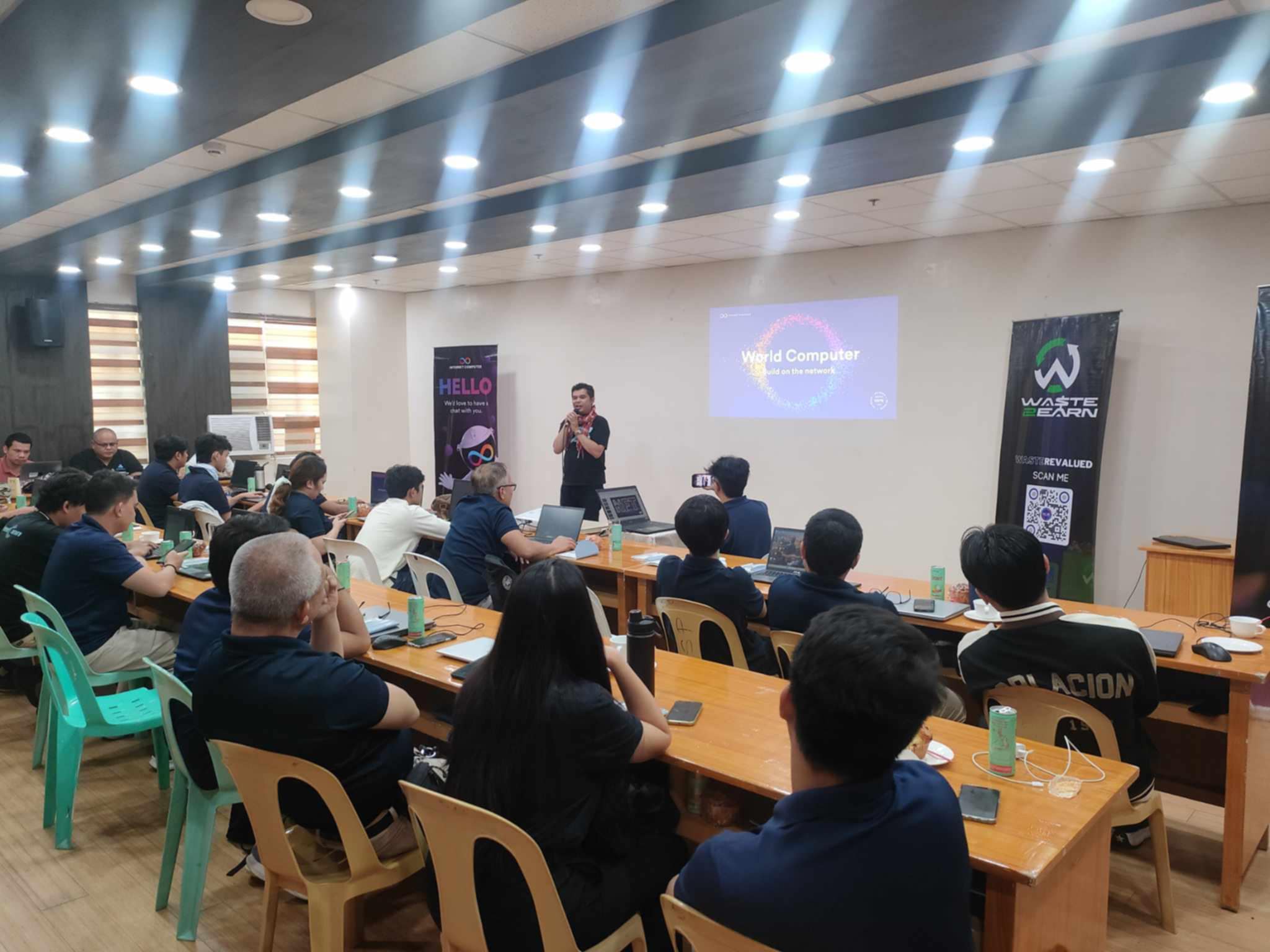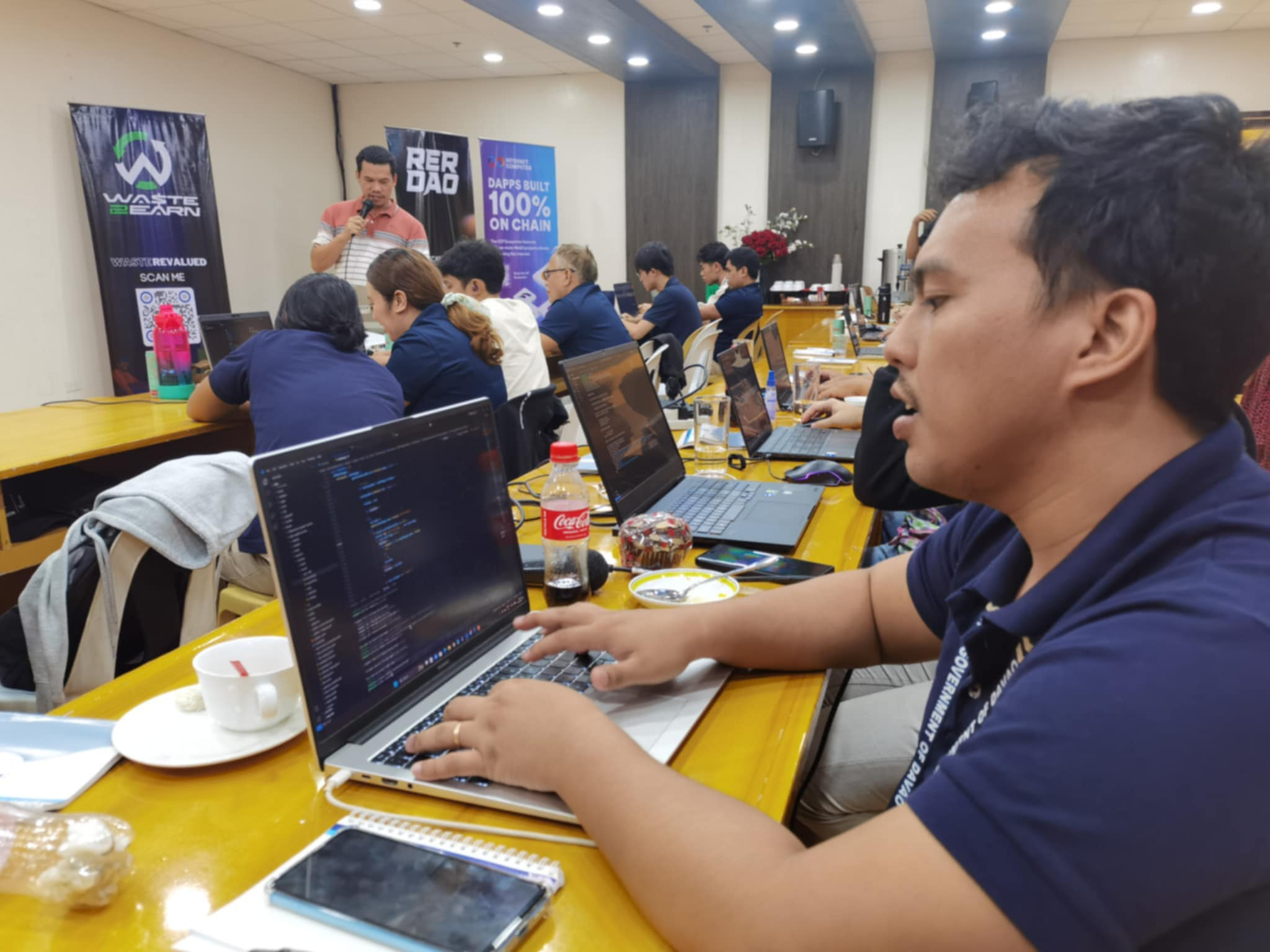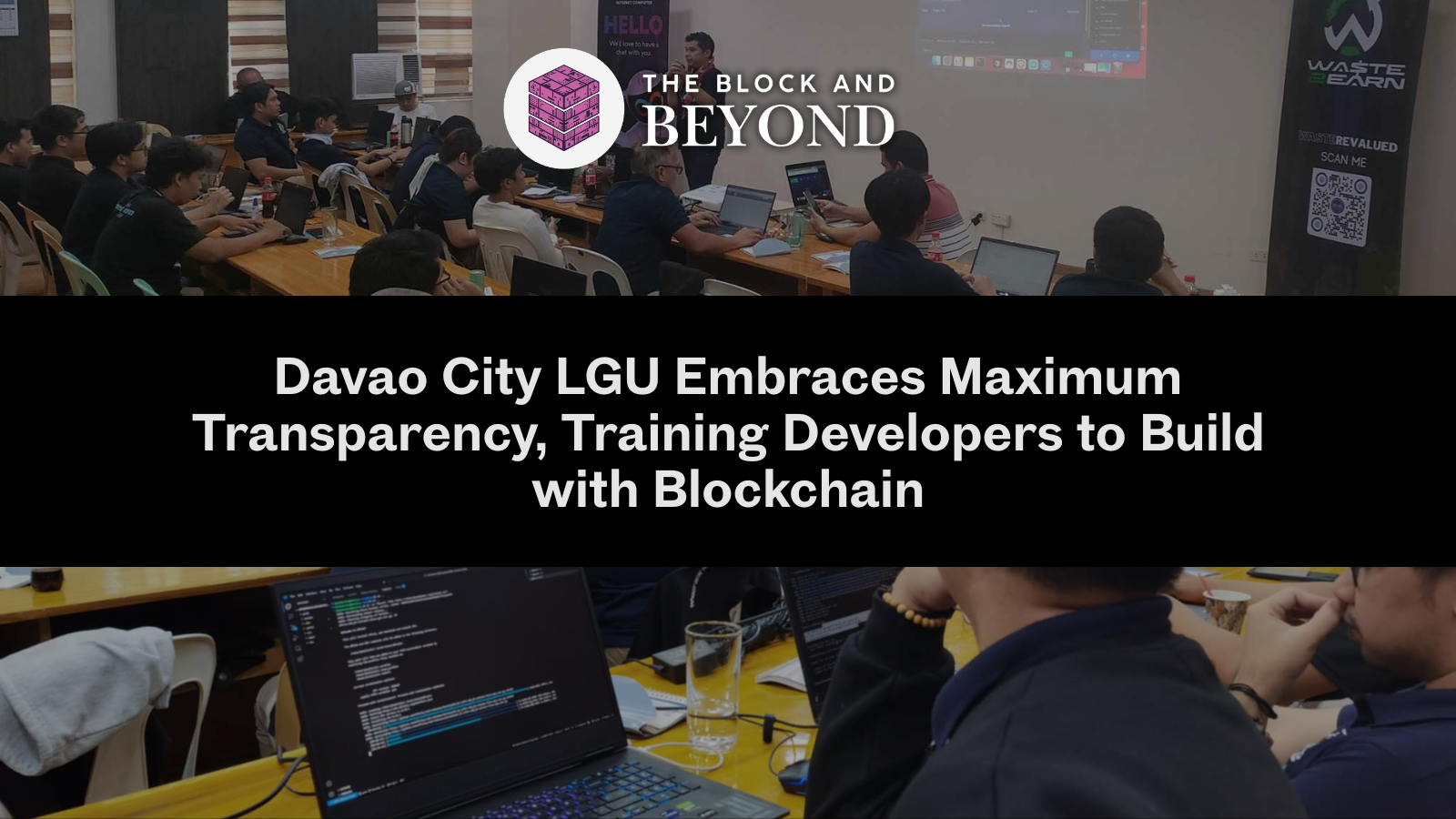While most cities are still exploring digital transformation, Davao is moving beyond exploration. It is actively training its government developers to build directly on the blockchain.
From April 7 to 11, 2025, the Davao City Local Government Unit is hosting the ICP Code Camp. This five-day blockchain immersion program transforms public sector developers into capable Web3 builders.
Held at the Sangguniang Panlungsod Building, the event brings together tech teams from key departments.
Participating departments included:
- Human Resource Management Office (HRMO)
- City Information Office
- City Mayor’s Office
- City Information Technology Center (CITC)
- City Accounting Office
The message is clear: Davao is quietly establishing itself as a hub of technical talent with the skills to build on-chain.
This Was More Than a Lecture. It Was a Bootcamp
The Code Camp is not a typical government seminar. It is immersive, fast-paced, and centered on practical blockchain applications.
Participants engaged in activities ranging from understanding blockchain fundamentals to deploying smart contracts on the Internet Computer Protocol (ICP). They did not just sit through presentations. They wrote code, pitched ideas, developed projects, and even created NFTs by the fourth day.
The goal was not only to learn. It was to build and show what they could create.
A Lineup of Local Blockchain Leaders
The event featured some of the country’s most active Web3 educators and builders. These speakers did more than share knowledge. They helped lay the groundwork for blockchain use within public sector services.
Ferdie James Nervida focused on blockchain cybersecurity, a crucial area for local governments that handle sensitive citizen data in a world moving toward decentralized systems.

Churchill Brizuela of NFT Davao introduced a broader perspective on NFTs. He presented them as tools for digital ownership, heritage preservation, and identity systems rather than mere artistic collectibles.

Rod Albores of ReverionTech explained the advantages of using ICP for government applications. He emphasized its affordability, tamper-resistant architecture, and suitability for reliable public service infrastructure.

Ed Albores delivered a live coding demonstration. His session allowed participants to visualize the process of building and deploying functional blockchain applications.

Eli Rabadon, ICP Tech Lead, flew in from Manila to demystify DFX deployments and canister communication. His hands-on guidance gave developers the tools to create scalable and modular systems on the blockchain.

Each session was carefully designed with the specific needs of local government developers in mind. Many participants are now exploring how blockchain can support citizen services, procurement systems, and improved transparency in governance.
Government Developers are Now Web3 Builders
This Code Camp marks a pivotal moment. Government developers are evolving beyond their traditional roles of managing off-the-shelf IT systems. They are being equipped to create applications on the blockchain that prioritize security, transparency, and public trust.
Whether it is for secure records management, open procurement, or future-ready public services, the foundation has been laid. Davao City is no longer just aware of blockchain technology. It is building capabilities from within.
Why This Matters to Builders and Investors
For startups, founders, and investors, this kind of initiative signals the beginning of real opportunities. It potentially opens pathways for partnerships, pilot programs, and innovation sandboxes in collaboration with local government.
Davao City is making its position known. The city is not waiting for Web3 adoption to happen. It is actively building it. And it is doing so with both technical precision and a strong sense of community purpose.







